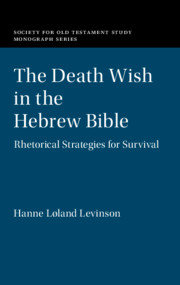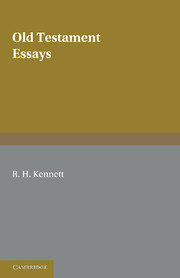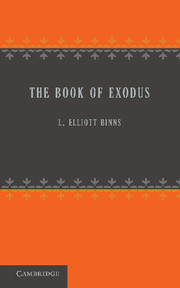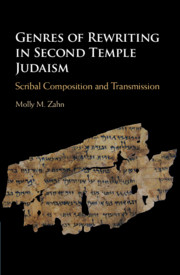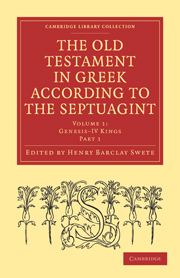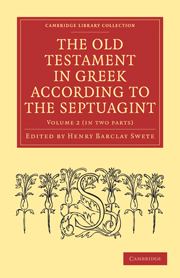The Death Wish in the Hebrew Bible
Rhetorical Strategies for Survival
Part of Society for Old Testament Study Monographs
- Author: Hanne Løland Levinson, University of Minnesota
- Date Published: September 2021
- availability: Not yet published - available from October 2024
- format: Hardback
- isbn: 9781108833653
Hardback
Other available formats:
Paperback, eBook
Looking for an inspection copy?
This title is not currently available for inspection. However, if you are interested in the title for your course we can consider offering an inspection copy. To register your interest please contact [email protected] providing details of the course you are teaching.
-
This is the first book to systematically investigate the texts in the Hebrew Bible in which a character expresses a wish to die. Contrary to previous scholarship on these texts that assumed these death wishes were simply a desire to escape suffering, Hanne Løland Levinson employs narrative criticism and conversation analysis, together with diachronic methods, to carefully hear each death-wish text in its literary context. She demonstrates that death wishes embody powerful, multi-faceted rhetorical strategies. Grouping the death-wish texts into four main rhetorical strategies of negotiation, expression of despair and anger, longing to undo one's existence, and wishing for a different reality, Løland Levinson portrays the complex reasons why characters in the Hebrew Bible wish for death. She concludes that the death wishes navigate the tension between longing for death and fighting for survival - a tension that many live with also today as they attempt to claim agency and autonomy in life.
Read more- The first monograph to systematically investigate the many death-wish texts in the Hebrew Bible
- Provides case study analyses of indicative death-wish texts in the Hebrew Bible (Gen 30, Num 11, 1 Kgs 19, Jonah 4, Jer 20, Job 3, Exod 16, and 2 Sam 18)
- Utilizes an eclectic collection of methods, both diachronic and synchronic, to interpret death-wish texts, with a special focus on conversation analysis
Awards
- Winner, 2023 Scott Award for Best Book on the Hebrew Bible, Canadian Society of Biblical Studies
Reviews & endorsements
'A very welcome addition to biblical studies, Hanne Løland Levinson's The Death Wish in the Hebrew Bible addresses a well-known motif that has never been given full and proper study. This fresh and insightful study avoids the pitfall of taking death wishes at face value and instead recognizes their rhetorical functions: death wish as a negotiation strategy; death wishes expressed in despair or anger; wishing away one's birth; and death wishes as wishful thinking. The book is very well constructed and executed; the writing is lovely. It also contributes to the contemporary social conversation about the end of life, especially in noting how the expression of a death wish may not communicate a simple wish for one's death, but a desire for help or an expression of deep pain or traumatic loss. Thoughtful; and most highly recommended.' Mark S. Smith, Princeton Theological Seminary
See more reviews'The book is a highly readable discussion of a fascinating topic, and full of precise and nuanced insights into the texts.' Marian Kelsey, Journal for the Study of the Old Testament
'Levinson has clearly demonstrated the rhetorical goals of utterances about death, and this remains an important contribution … an important and worthwhile study.' David G. Firth, Society of Biblical Literature
'… an important and worthwhile study.' David G. Firth, Review of Biblical Literature
'[This] is a gem of a book. Despite its weighty subject, it provides easy reading on a relatable topic that helps us better understand why biblical characters express the desire to die and why we continue to use similar expressions in contemporary life to communicate despair, frustration, and anger, but also as a rhetorical strategy that works to change our circumstances. … Despite its morbid topic, Hanne Løland Levinson offers a fascinating, accessible, and even enjoyable analysis of biblical death-wish texts.' Amy Kalmanofsky, AJS Review: The Journal of the Association for Jewish Studies
'This study is the result of Hanne Løland Levinson's intense, and personal, work on texts that daringly express human's lament and prayer when experiencing distress and challenges. … The work fits well into the current debates around biblical characters' emotions. The analytical approach avoids hasty psychological speculations about the characters' feelings. Using detailed assessments of how conversations can be interpreted and a range of methods, the complexity of such expressive conversations is highlighted.' Martina Weingärtner, Theologische Literaturzeitung (ThLZ)
Customer reviews
Not yet reviewed
Be the first to review
Review was not posted due to profanity
×Product details
- Date Published: September 2021
- format: Hardback
- isbn: 9781108833653
- length: 275 pages
- dimensions: 222 x 145 x 16 mm
- weight: 0.39kg
- availability: Not yet published - available from October 2024
Table of Contents
1. Introduction
2. Death wish as a negotiation strategy
3. Death wish in despair and anger
4. Wishing away one's birth
5. Death wishes as wishful thinking
6. Wishing for death or fighting for life?
Sorry, this resource is locked
Please register or sign in to request access. If you are having problems accessing these resources please email [email protected]
Register Sign in» Proceed
You are now leaving the Cambridge University Press website. Your eBook purchase and download will be completed by our partner www.ebooks.com. Please see the permission section of the www.ebooks.com catalogue page for details of the print & copy limits on our eBooks.
Continue ×Are you sure you want to delete your account?
This cannot be undone.
Thank you for your feedback which will help us improve our service.
If you requested a response, we will make sure to get back to you shortly.
×
